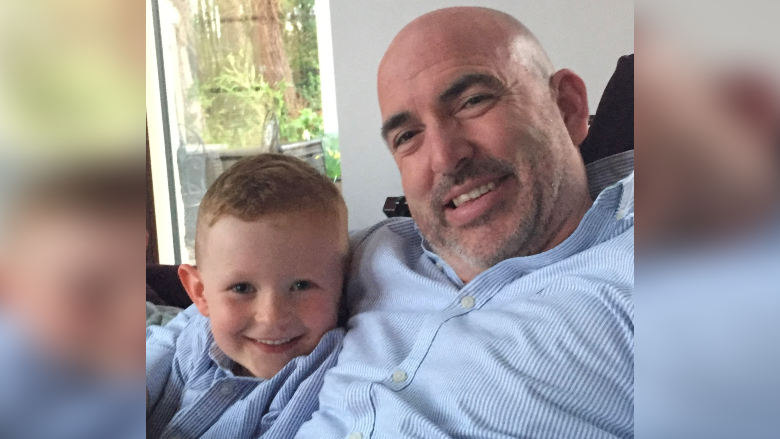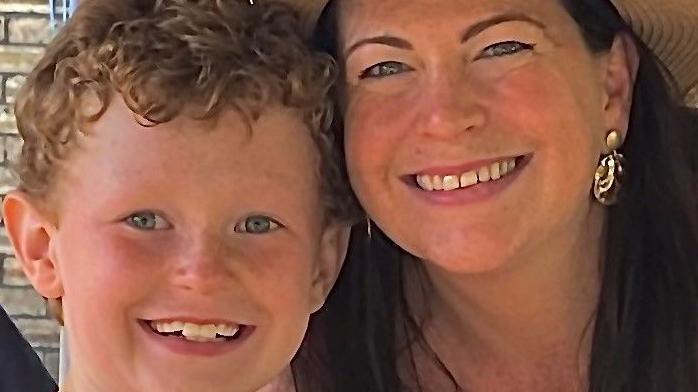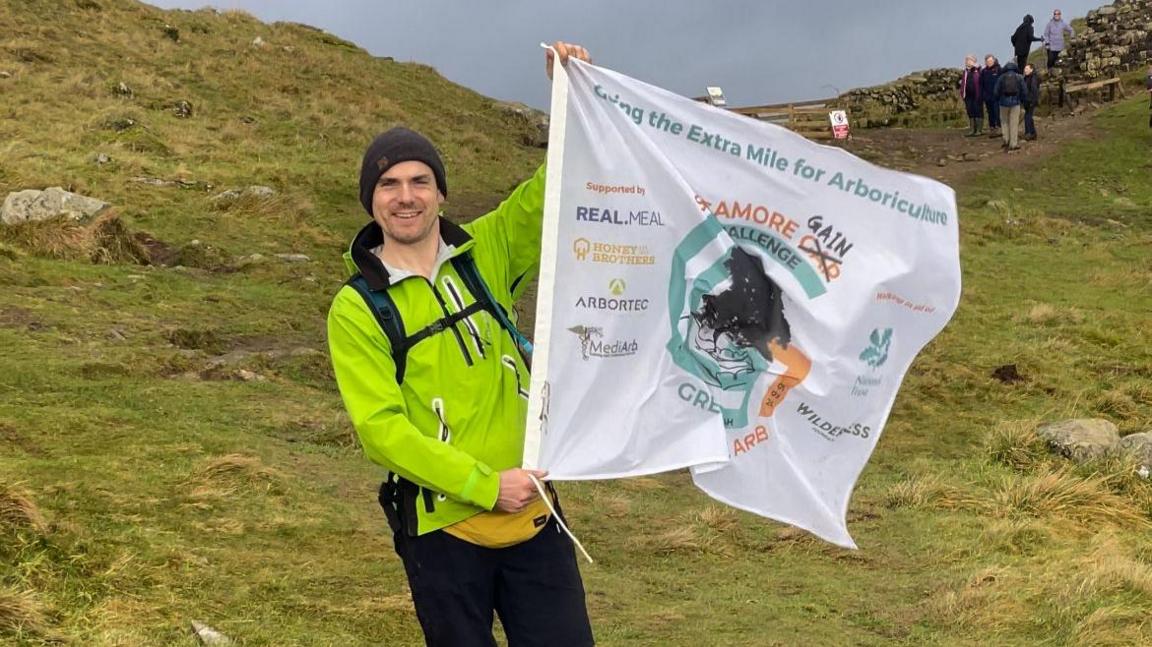Boy's plight inspires barefoot Hadrian's Wall trek

Craig Hamilton helps Harry's mother to make his nephew's life as normal as possible
- Published
An uncle will walk the length of Hadrian's Wall barefoot to raise awareness of his nephew's rare condition.
Harry Hamilton, 10, lives in "excruciating pain" due to widespread blisters and skin tearing caused by epidermolysis bullosa (EB).
Later this month, Craig Hamilton from Consett will embark on the 84-mile trek to raise awareness and support for charity DEBRA UK, which helps EB sufferers.
He said: "I don't use the word suffer lightly. Harry is an unbelievably brave boy who battles this debilitating and incurable disease on a daily basis."
For Harry, who has had EB since birth, the "simplest, every day" tasks most people take for granted are a struggle.
At the time most children are getting ready for school, Harry will have already undergone a painful session of blister draining.
His mother, Sarah, needs to dress them every day to ensure infection does not take hold.

Harry Hamilton and his mother battle every day to control the impact of EB
Harry needs the help of a wheelchair to get around school, takes morphine to get through a normal school day and often cannot eat due to blistering in his mouth.
But wherever possible, the youngster does not let the condition - which affects around one in every 50,000 children - get in his way.
"He's just amazing," Ms Hamilton, from Shotley Bridge in Consett, said.
"He never makes a fuss, and we try not to as we want him to live as much of a life as possible.
"We're so proud of him."
The family have been supported by DEBRA UK, a charity dedicated to helping those with EB and those that care for them.
Mr Hamilton said: "The charity has been so supportive to my sister and Harry and I desperately want to give something back."
With each step he takes along Hadrian's Wall, Mr Hamilton hopes to shed light on the realities of living with EB and add to the £7,000 he has already raised for the charity.
He will set out on his trek on 18 May.
Follow BBC North East on X (formerly Twitter), external, Facebook, external and Instagram, external. Send your story ideas to northeastandcumbria@bbc.co.uk.
Related topics
More stories from BBC North East and Cumbria
- Published4 January 2024
